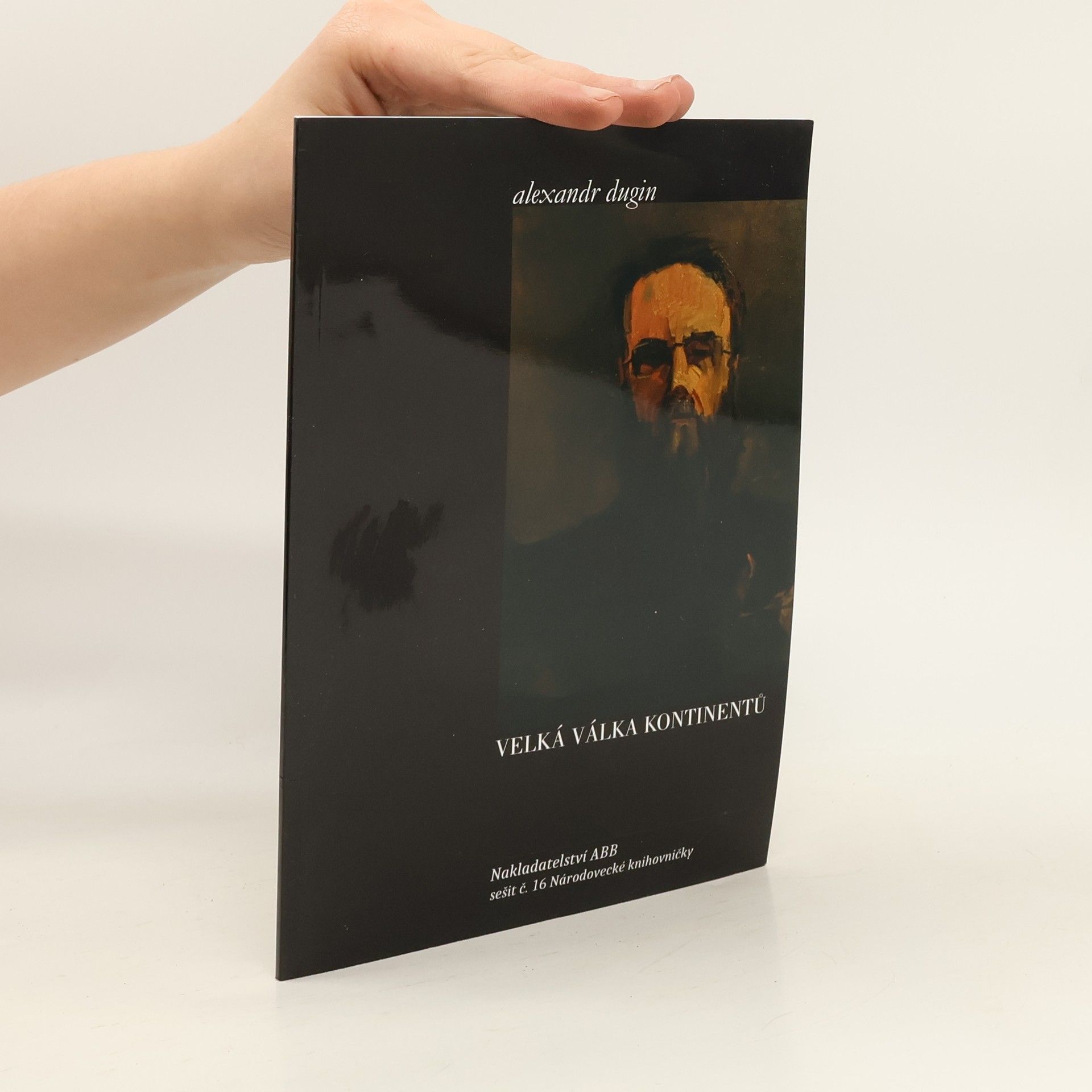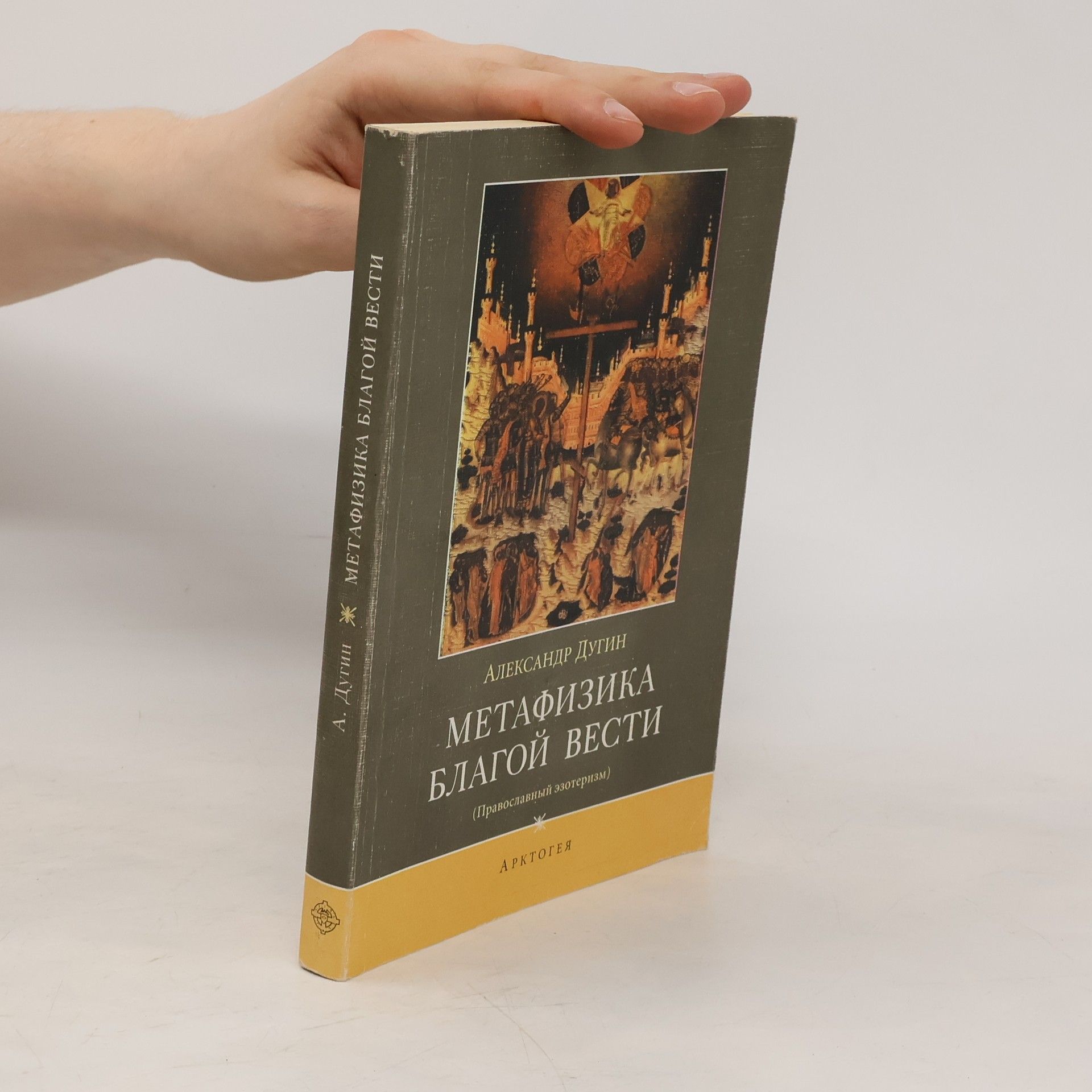Alexandr Geljevič Dugin Knihy
- Hans Zivers
- Ганс Зиверс
Aleksandr Gelyevich Dugin je politolog a tradicionalista, jehož myšlenky se soustředí na obnovu ruské moci a vlivu. Je znám jako jeden z hlavních ideologů eurasijské říše, která by měla oponovat severoatlantickým zájmům. Jeho politické aktivity jsou zaměřeny na obnovení ruského impéria prostřednictvím sjednocení ruskojazyčných území. Duginova práce je charakteristická snahou o obnovení ruského vlivu prostřednictvím územních ambicí a ideologického odporu vůči západním mocnostem.






Čtvrtá politická teorie
- 480 stránek
- 17 hodin čtení
Každý politický systém moderní éry se odvozoval od některé ze tří velkých ideologií. První a nejstarší z těchto ideologií je liberalismus, druhou je komunismus, třetí je fašismus. Druhá a třetí ideologie se diskreditovaly a časem opustily jeviště dějin západního světa. Liberalismus s námi zůstal dodnes, nikoli však jako ideologie, nýbrž jako cosi daného. Vědomě si jej nevybíráme - tiše se předpokládá, že s ním souhlasíme. Svět kolem nás proto stojí na prahu postpolitické reality, kde jsou hodnoty liberalismu natolik zažité, že jejich ideologický rozměr si už nikdo ani neuvědomuje. Autor této knihy přichází s návrhem na vypracování čtvrté politické teorie. Ta bude čelit liberalismu z nových pozic, odlišných od komunismu i fašismu a překračujících dělení na pravici a levici. Ve svém díle hledá cesty, jimiž se myšlení v rámci tohoto nového paradigmatu může ubírat: nebojí se při tom sáhnout po těch zdánlivě nejsubverzivnějších plodech postmoderního myšlení. Alexandr Dugin (*1962) je „myslitelský chameleon“, nechvalně známý bezpodmínečným prosazováním velmocenské pozice Ruské federace. Někteří mu připisují vliv na rozhodování Kremlu. Studium jeho díla je důležité pro pochopení současného Ruska a ideologických cest, jimiž chce hájit své zájmy.
Last War of the World-Island
- 170 stránek
- 6 hodin čtení
The Great Awakening vs the Great Reset
- 98 stránek
- 4 hodiny čtení
Alexander Dugin's The Great Awakening vs the Great Reset is an open declaration of war against the twin diseases of liberalism and Western political modernity. Dugin calls upon the inhabitants of the Heartland to relentlessly attack, on all theoretical and practical fronts, the global elites of the coastlands, who try to impose their perverse, anti-human ideals by ruthlessly eradicating the long-standing cultures and traditions of all peoples in the world. The demented usurper Joe Biden and his slavish Democrat acolytes are opposed by the Trumpists, who represent normal America and do not want to see their country submerged in a one-world, transhumanist dystopia. Just like the other rooted societies, they want to preserve their time-honoured way of life amidst the strangling tentacles of hysterical trans- and homosexuals, treacherous anti-White agitators and murderous Black Lives Matter grifters and terrorists. Thus the stage is set for a showdown of truly apocalyptic proportions, pitting the forces of righteous anger, those who want to preserve traditions and the true richness of human diversity, against the Antichrist and his Soros-backed minions of insidious degeneracy and evil, who want to erase all bonds and communities - down to the human race itself.
Eurasian Mission: An Introduction to Neo-Eurasianism
- 222 stránek
- 8 hodin čtení
According to Alexander Dugin, the twenty-first century will be defined by the conflict between Eurasianists and Atlanticists. The Eurasianists defend the need for every people and culture on Earth to be allowed to develop in its own way, free of interference, and in accordance with their own particular values. Eurasianists thus stand for tradition and for the blossoming variety of cultures, and a world in which no single power holds sway over all the others. Opposing them are the Atlanticists. They stand for ultra-liberalism in both economics and values, stopping at nothing to expand their influence to every corner of the globe, unleashing war, terror, and injustice on all who oppose them, both at home and abroad. This camp is represented by the United States and its allies around the world, who seek to maintain America's unipolar hegemony over the Earth. The Eurasianists believe that only a strong Russia, working together with all those who oppose Atlanticism worldwide, can stop them and bring about the multipolar world they desire. This book introduces their basic ideas. Eurasianism is on the rise in Russia today, and the Kremlin's geopolitical policies are largely based on its tenets, as has been acknowledged by Vladimir Putin himself. It is reshaping Russia's geopolitics, and its influence is already changing the course of world history.
Ethnos and Society
- 250 stránek
- 9 hodin čtení
In this monograph, Dugin provides an overview of the primary foreign and Russian sources and schools that influenced the establishment of ethnosociology as an independent and original scientific discipline. Dugin offers a profoundly philosophical approach to the categories of the "ethnos," "narod," "nation" and "society," providing clear definitions of these concepts, and expounding a broader ethnosociological taxonomy. For the first time in the field, this work brings a consistent approach to a broad spectrum of knowledge, as well as elucidating various methodologies of ethnosociological analysis, bringing everything together into a single, easily applicable system. This volume is an invaluable manual for those specializing in sociology, philosophy, political science, cultural studies, ethnology, international relations, state, and law, as well as being of interest to those who follow the current developments in the humanities.
Die Vierte Politische Theorie
- 326 stránek
- 12 hodin čtení
Alexander Dugins Werk ist eine kraftvolle Kritik an Liberalismus und der westlichen politischen Moderne, die er als Zwillingskrankheiten betrachtet. Er mobilisiert die Bewohner des Kernlandes, um gegen die globalen Eliten der Küstenländer zu kämpfen, die ihrer Meinung nach traditionelle Kulturen und Werte durch aggressive Ideologien bedrohen. Dugin fordert zu einem umfassenden Widerstand auf, sowohl theoretisch als auch praktisch, um die bestehenden kulturellen und traditionellen Identitäten zu verteidigen.
Das Große Erwachen gegen den Great Reset
- 126 stránek
- 5 hodin čtení

